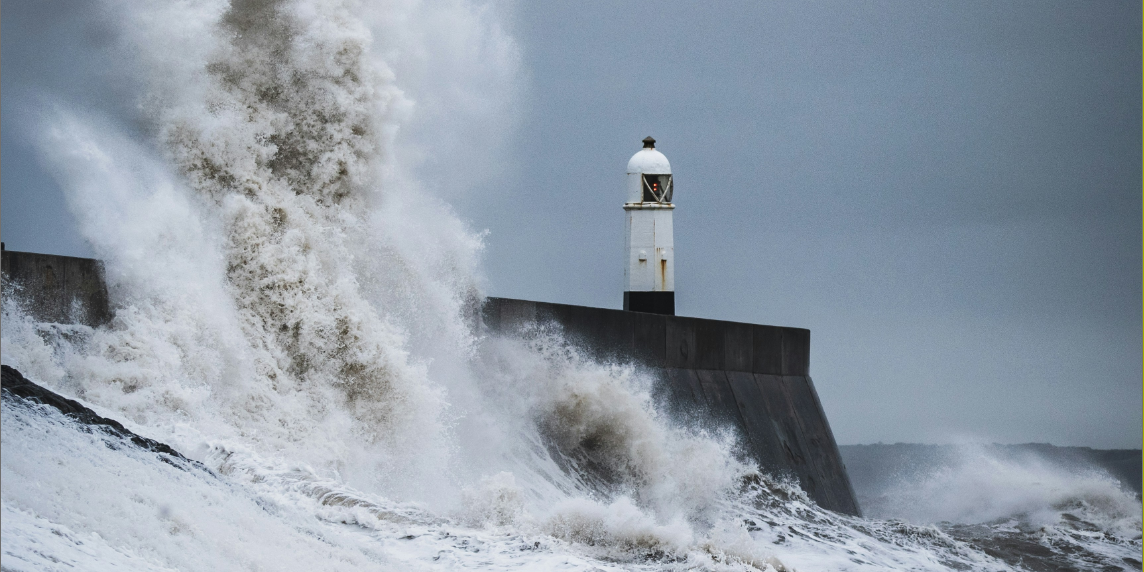Making sense of our connected world

Science hostility: What we know and what we can do about it
Public communication on controversial issues like climate change or global health crises has meant that science is more relevant than ever before. At the same time, it has made researchers vulnerable to attacks that undermine their credibility, potentially silencing them and prompting them to withdraw from the public sphere. In 2023, we launched the project Capacities and Competencies in Dealing with Hate Speech and Hostility towards Science (KAPAZ), funded by the Volkswagen Foundation. It seeks to understand the prevalence and forms of science hostility in Germany and aims to create resources to support researchers. Early findings indicate that hostility arises from both scientific and non-scientific actors, manifesting as online harassment, verbal threats and even physical attacks. The project highlights the need for communication training, institutional support and protective measures to empower researchers to deal with these challenges. Through different initiatives and programmes, KAPAZ aims to foster organisational change, equip researchers with strategies to manage hostility and promote constructive public engagement.
Have researchers become public targets?
During the COVID-19 pandemic, hostility towards experts from academia and researchers was strikingly evident. Many scientists who shared their work found themselves at the centre of shitstorms and facing public character assassination campaigns or online harassment. Notable examples include the attack on the German virologist Christian Drosten while vacationing at a campsite, and the controversial article “Die Lockdown-Macher” (The Lockdown Makers), which attributed researchers responsibility for COVID-related social restrictions. These incidents are merely the tip of the iceberg, illustrating the aggression that researchers may face when sharing their work with the public. A 2021 survey published by Nature revealed that some scientists commenting on COVID-19 even received death threats (Nogrady, 2021). Research is becoming increasingly entangled with a public discourse that operates differently than communication with academic peers. This may bring unintended consequences for researchers and their reputations.
Despite the growing visibility of these issues, hostile attitudes and attacks on researchers have not been extensively studied. To address this gap, the project KAPAZ was launched in 2023. Led by the Alexander von Humboldt Institute for Internet and Society, this three-year initiative seeks to provide in-depth, up-to-date insights into science hostility in Germany. The project also aims to develop and sustain resources to support researchers facing such challenges. In this article, we share some initial observations on the phenomenon of science hostility and explore strategies to counteract it.
More communication, more exposure
Before diving more deeply into the phenomenon of science hostility, let’s have a look at three key developments in research that have profoundly impacted scientists’ communication behaviour. These should be noted when reflecting on the negative consequences of researchers’ public engagement.
First, over recent decades, many Western countries, including Germany, have emphasised the societal relevance of science. This shift has fundamentally changed funding priorities and institutional strategies, meaning that public communication and societal impact have grown in importance. Researchers increasingly need to engage with the public to secure funding and advance their careers. Second, digitalisation and the rise of social media, digital platforms and open science practices have removed traditional gatekeepers, enabling researchers to interact directly with non-academic audiences. Finally, researchers often have a strong intrinsic motivation to contribute to societal processes. A recent survey among German researchers found that a significant majority across disciplines view societal impact as integral to their work, despite lacking adequate institutional support (Fecher & Hebing, 2021). However, this greater engagement and motivation also exposes researchers to a different — and often more hostile — culture of debate, making them more vulnerable to attacks and conflicts. It’s worth noting that hostility toward science isn’t limited to communication between academia and society; it also exists within scientific communities, arising from debates over methodologies, data quality, or openness. However, this blog focuses on hostility in public science communication, not internal academic tensions. .
Not new but largely unknown
Hostility toward science is not new; it has appeared throughout history in many different forms. While once rooted more in religious beliefs, hostility now often stems from the interplay between political attitudes and scientific expertise (Gauchat 2012). Since the 1970s, fields like climate research, animal or food-related research and gender studies have faced hostility. Such opposition has often been labelled “anti-science” (Holton 2000, Gauchat 2012, Goldenberg 2016), “science rejection” (Lewandowsky et al. 2013, Lewandowsky & Oberauer 2016, Goldenberg 2016) or “science scepticism” (Allum 2008, Rutjens et al. 2022) – and indeed, all of these describe attitudes that challenge or dismiss scientific inquiry. Nevertheless, in the KAPAZ project, we adopt a broad perspective on science hostility, encompassing not only direct attacks on researchers in public debates but also other disruptive behaviours that hinder academic and social dialogue.
There is a scarcity of empirical evidence on the forms and dimensions of science hostility. A recent systematic review by Seeger et al. (2024) highlights that such attacks can be made by both scientific and non-scientific actors, manifesting as coordinated efforts (e.g. by populist groups) or spontaneous incidents like online harassment campaigns. Although science hostility is often linked to digital communication, the authors note that science hostility may be expressed in emails, social media posts, letters, personal calls and even physical attacks, sometimes backed by interest groups.
The literature review highlights that attacks and expressions of hostility can undermine researchers’ perceived credibility. They can also provoke cognitive and emotional responses, such as a fear of future attacks, insecurity about their work or the need for emotional or institutional support. These reactions can even lead to reduced public communication, a phenomenon called “silencing”. Other studies support these findings. They note that some researchers withdraw from public discourse or avoid engaging with non-academic audiences due to fears of reputational damage or diminished credibility as experts (Väliverronen, E., & Saikkonen, S. 2021). More broadly, “silencing” or “self-censorship” occurs when scientists remain silent to protect their careers, reputations or well-being (Nogrady 2021, Vidal Valero M. 2023).
What we know about science hostility in Germany
A recent study conducted by the DZHW within the KAPAZ project explores the personal perceptions, forms and consequences of science-related hostility. While most respondents reported observing an increase in hostility, the survey only offers a snapshot of perceived incidents. It does not provide objective information on trends, as no long-term comparative data exists.
Despite this limitation, this data is nonetheless valuable, as we must understand personal experiences before developing resources to enhance researchers’ resilience. Such resources can support them in managing attacks, preventing their voices from being “silenced”. Nearly half of the respondents reported experiencing hostility. The most common forms were doubts about their competence and condescending criticism. Though often unjustified, such incidents reflect a clash between academic norms and non-academic debate cultures. These clashes are fuelled by personal values and differing views of “truth”. Politicians or journalists often navigate such dynamics, but scientists presenting conflicting results in public can unsettle audiences expecting clear “truths” from science. Researchers must therefore be prepared for these discourse dynamics. Communication training needs to be a part of scientific education. The survey also reveals that around 10% of respondents faced serious attacks, including verbal threats, death threats and vandalism, underscoring the need for protective measures.
Creating resources to combat science hostility
There are several effective strategies for supporting researchers who face hostility or are cautious about it. One such strategy is institutional backing, where the organisation concerned issues public statements or assists with moderating social media discussions. In some cases, documenting incidents or reporting abusive behaviour also prove key measures. Another way to foster constructive public discourse is to demonstrate awareness of political tensions and frame messages in a neutral tone while transparently presenting limitations and uncertainties. However, such actions only scratch the surface. Within KAPAZ, we are working to develop more comprehensive and sustainable resources. These aim to drive organisational change across the whole research community and provide tailored support to individual researchers. We offer a number of training programmes to build competence and maintain institutional structures that provide support for those affected by hostility.
For example, our Train-the-Trainer programme brings together science communication managers and press officers from universities and research institutions. It gives participants the knowledge and tools they need to address science hostility effectively. The programme focuses on developing tailored institutional strategies, raising awareness about the issue of science hostility and advocating for organisational change. Through interactive workshops and collaborative exercises, participants gain the practical skills they need to support their institutions in fostering resilience and creating safer environments for researchers engaging with the public.
The Summer School is another initiative designed for researchers of all career stages and from diverse disciplines. It supports these researchers in engaging with non-academic audiences, whether through public communication, science-policy consulting or citizen science. Combining interactive workshops, practical exercises and collaborative sessions, the programme gives participants essential skills to enhance their communication strategies and build resilience against hostility. By fostering a supportive environment, it also helps researchers develop confidence and create networks to navigate the challenges of public engagement effectively.
Resilience: Empowering researchers in challenging times
Science hostility is not just a challenge for individual researchers; it is a broader societal issue that requires collective effort. By recognising the forms and consequences of hostility, supporting people affected by hostility and fostering constructive public discourse, we can protect the integrity of research and help it continue to play an essential role in society. At KAPAZ, we are committed to creating resources and initiatives that empower researchers to navigate these challenges while ensuring that science remains accessible, credible and impactful. Together, we can build a research community that is resilient in the face of hostility and better equipped to engage with society on the critical issues of our time.
References
Allum, N., Sturgis, P., Tabourazi, D., & Brunton-Smith, I. (2008). Science knowledge and attitudes across cultures: a meta-analysis. Public Understanding of Science, 17 (1), 35-54. https://doi.org/10.1177/0963662506070159
Fecher, B., & Hebing, M. (2021). How do researchers approach societal impact?. PLoS One, 16 (7). https://doi.org/10.1371/journal.pone.0254006
Gauchat, Gordon (2012). Politicization of science in the public sphere: A study of public trust in the United States, 1974 to 2010. American sociological review, 77 (2), 167-187. https://doi.org/10.1177/0003122412438225
Goldenberg, M. J. (2016). Public Misunderstanding of Science? Reframing the Problem of Anti-science Attitudes. Perspectives on Science, 24 (5), 544-581. https://doi.org/10.1162/POSC_a_00223
Holton, G. (2000). Wissenschaft und Anti-Wissenschaft. Springer Vienna.
Lewandowsky, S., Gignac, G. E., & Vaughan, S. (2013). The pivotal role of perceived scientific consensus in acceptance of science. Nature Climate Change, 3 (4), 399-404. https://doi.org/10.1038/nclimate1720
Lewandowsky, S., & Oberauer, K. (2016). Motivated Rejection of Science. Current Directions in Psychological Science, 25 (4), 217–222. https://doi.org/10.1177/0963721416654436
Nogrady, B. (2021). ‘I hope you die’: how the COVID pandemic unleashed attacks on scientists. Nature, 598 (7880), 250-253. https://doi.org/10.1038/d41586-021-02741-x
Rutjens, B. T., Sengupta, N., Der Lee, R. V., van Koningsbruggen, G. M., Martens, J. P., Rabelo, A., & Sutton, R. M. (2022). Science skepticism across 24 countries. Social Psychological and Personality Science, 13 (1), 102-117. https://doi.org/10.1177/19485506211001329
Seeger, C., Frischlich, L., Obermaier, M., Schmid, U., Schulze, H. (2024) Hate Speech und Angriffe auf Wissenschaftler*innen. Ein Forschungsüberblick. BBAW 2024: https://transferunit.de/thema/hate-speech-und-angriffe-auf-wissenschaftlerinnen/
Väliverronen, E., & Saikkonen, S. (2021). Freedom of Expression Challenged: Scientists’ Perspectives on Hidden Forms of Suppression and Self-censorship. Science, Technology, & Human Values, 46(6), 1172-1200. https://doi.org/10.1177/0162243920978303
Vidal Valero, Myriam. (2023) “Death Threats, Trolling and Sexist Abuse: Climate Scientists Report Online Attacks.” Nature. https://www.nature.com/articles/d41586-023-01018-9
This post represents the view of the author and does not necessarily represent the view of the institute itself. For more information about the topics of these articles and associated research projects, please contact info@hiig.de.

You will receive our latest blog articles once a month in a newsletter.
Open higher education
AI at the microphone: The voice of the future?
From synthesising voices and generating entire episodes, AI is transforming digital audio. Explore the opportunities and challenges of AI at the microphone.
Do Community Notes have a party preference?
This article explores whether Community Notes effectively combat disinformation or mirror political biases, analysing distribution and rating patterns.
How People Analytics can affect the perception of fairness in the workplace
People Analytics in the workplace can improve decisions but may also heighten feelings of unfairness, impacting employee trust and workplace relationships.




